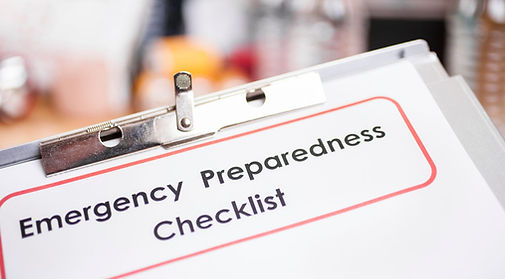VA MISSION ACT
.png)
The goal for the Veterans Administration (VA) is to provide the Veteran with state-of-the-art care, impeccable service, excellent experience, and improved health care. Effective June 6, 2019, the VA Choice Program has changed to the VA Maintaining Internal Systems and Strengthening Integrated Outside Networks Act (MISSION Act) of 2018. To qualify for a VA contracted community provider that is in-network, you will need to receive VA health care benefits through the VA. If the VA medical facility cannot schedule an appointment within 20 days of the date of the request from the provider or 28 days of the date of the request and/or the drive time is longer than 30 minutes for primary care, mental health care, or non-institutional extended care services, or within 60 minutes average driving time for specialty care, you are eligible for community care from a VA community provider that is in-network.
The VA offers numerous health care services such as primary care, behavioral health, dental, vision, critical care, physical therapy, oncology, geriatrics, neurology, prescription drugs, surgical services, community-based counseling, outreach, and referral services.
The VA MISSION Act of 2018 has six different eligibilities criteria for community care:
-
You need a service not available at any VA medical facility
-
You live in a U.S. state or territory without a full-service VA medical facility
-
You are “grandfathered” in due to the Veteran’s Choice Program
-
VA cannot provide care within certain access standards
-
The VA referring provider and you decide it is in your best interest to receive care from a VA community care provider outside of the VA medical facility
-
VA medical service is not providing the care that complies with VA’s standards for quality
If you are enrolled in VA health care benefits and received care from a VA provider or VA community provider that is in-network within the last 24 months prior to receiving urgent or walk-in care, you can go to a VA community provider that is in-network and receive care without an authorization.
Eligibility and Application Process
Find a VA location
You can also call 1-877-222-8387 or walk into a VA medical facility and apply.
Additional Resources

SPECIAL POPULATIONS

Many Health Center Program grantees receive federal funds to provide health care and social services for the general underserved community and populations in their service areas.
Special Populations are defined by HRSA as being: Veterans, Migrant, and Seasonal Farmworkers, Homeless, Native Americans, clients living in temporary housing, and clients living with HIV. One client could belong to one or more of the above categories.
Resources for Providers and Clinicians

EMERGENCY PREPAREDNESS
.jpg)
The importance of preparing ourselves for disasters is universal. Emergencies can happen anywhere - at home or at work - and everyone must take action to prepare for emergencies in case something unexpected happens. This is very important to health centers that need to get back to the business of providing health care to their patients, keep revenue coming in, and payroll going out. In fact, Community Health Centers are required by HRSA to have an emergency plan in place.
The Nevada Primary Care Association (NVPCA) collaborates with the National Association of Community Health Centers (NACHC), California Primary Care Association (CPCA), and a National Emergency Preparedness Coalition to provide training and information related to emergency preparedness and training.
To request more information on utilizing Emergency Preparedness within your health center, please contact: Steve Messinger
RESOURCES:
Tracie (HHS) - The Technical Resources, Assistance Center, and Information Exchange feature resource materials, a helpline, just-in-time suggestions and tools to share info from real-life experiences in preparing for, responding to, and recovering from disasters. TRACIE is the nation’s first and most comprehensive system of resources designed specifically to help communities better prepare for and manage the health impacts of disasters.
Emergencies Happen - Prepare Now (NACHC) -This guide provides information, tools, and templates that will assist health centers as they develop and implement comprehensive emergency management programs
Business Continuity Plan Template (NACHC and PCDC) - In the face of a disaster, health centers must manage their ability to continue caring for the patients in the community. Maintaining operations in the event of a disaster become possible through effective business continuity planning. This template will guide you in the process of developing a comprehensive business continuity plan for your health center.
Rural Communities and Emergency Preparedness (HRSA) - This compendium provides guidance and information for rural health centers.
Navigating the CMS Emergency Preparedness Final Rule Webinar from 1.13.2021
Mass Violence Resources - National Mass Violence Victimization Resource Center

INTEGRATED BEHAVIORAL HEALTH
WHY IS BEHAVIORAL HEALTH INTEGRATION SO IMPORTANT IN NEVADA?
Nevada’s unique geography presents many issues for patients seeking health care services. The access barriers are especially prevalent in the more rural parts of our state. Integrating services such as behavioral health into the primary health care model can improve the health of patients on a holistic level.
Integrated health care encourages tight-knit care teams and strong referral relationships. Establishing comprehensive treatment plans addressing the psychological and biological needs of patients have positive outcomes for the individual and communities. Evidence suggests that better care coordination, which integrates behavioral health services within primary care, can enhance access to services, improve quality of care, and lower overall health care expenses. What patients need is a team of experts that are committed to working together to improve overall health, from head to toe, inside and out!
SAMHSA Behavioral Health Provider Lookup Tool
Tools for Behavioral Health Integration:
-
Advancing Behavioral Health Integration Within NCQA Recognized Patient-Centered Medical Homes
-
Standard Framework for Levels of Integrated Health Care for Primary and Behavioral Health Provider
-
HRSA BPHC Behavioral Health Integration Technical Assistance
-
A Quick Start Guide to Behavioral Health Integration for Safety-Net Primary Care Providers
-
HRSA BPHC Behavioral Health and Primary Care Integration - Data







